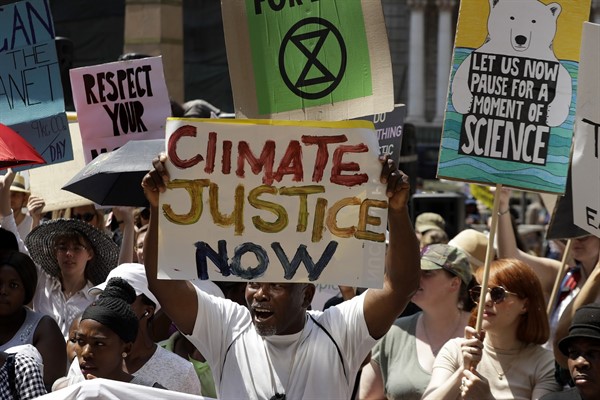Properly coming to grips with this situation requires deepening our understanding of the history of the modern age, whose very creation was made possible by African sacrifices. As I have documented in my new book, “Born in Blackness: Africa, Africans, and the Making of the Modern World, 1471 to the Second World War,” the Atlantic slave trade and the plantation production model that it made possible turned the Western Hemisphere into an immensely lucrative project for Europe. Although their contribution has been widely overlooked, enslaved Africans were critical to the production of the precious metals in the New World—gold and silver—that have long been accorded importance in traditional accounts of Western economic history. But people brought from Africa were also responsible for an enormous, centuries-long boom in commodity wealth derived from the production of sugar, coffee, cocoa, tobacco and cotton. Even more than gold and silver, the windfall derived from their sweat and blood transformed European economies, and indeed life itself on that continent, to an extent that remains vastly underestimated and generally overlooked. The dramatic advances realized by Europeans and their offspring during the creation of what we nowadays call the West came at a drastic cost for Africa’s own population and therefore that continent’s productivity in this era. At least 12.5 million enslaved people were brought in chains to the Americas, but this already huge number does not reflect the enormous death toll inflicted on the continent in the drive to obtain people for sale into bondage. Nor does it include the large numbers of Africans who died at sea in the floating coffins that slavers used to transport them. Taken together, one can easily imagine a population of, say, 20 million to 40 million people lost from Africa to the European slave trade, in an era when the overall population of the continent was probably about 100 million people. Seen against this backdrop, the African demography that some point to with increasing alarm in the context of climate debates in fact merely represents a rebound from this previous mass slaughter. Africa’s contribution to Western development did not end with the slave trade, either. During the colonial era that lasted from the late 19th century to the 1960s across most of the continent, Europeans conscripted large numbers of Africans to fight in their wars, while obliging the rural masses to participate in slavery’s near kin: forced labor in order to continue producing commodities and raw materials for Western consumption. Because of the pervasive mythology of the “white man’s burden,” few in the West know that European development programs on the continent only began piecemeal and on a very small scale after World War II, and that this took place against the backdrop of continued corvee labor. Getting the world to a survivable climate future will require taking Africans and these deep historical injustices into account, something that climate diplomacy has so far completely failed to do. Africans have instead been limited to the margins of meetings like the ongoing COP26 climate summit in Glasgow, while others, notably in Europe, make decisions that will decide the future of everything from the extraction of oil and gas on the continent to the conservation of African forests and wetlands. The West is incapable of imposing its climate priorities on China and India, which have the wherewithal to produce, acquire and burn hydrocarbons in whatever quantities they deem necessary to fuel their economies and lifestyles. By contrast, it may be able to keep most of Africa’s huge hydrocarbon reserves in the ground or undersea, cutting off an important revenue stream for many poor countries. What the West will not be able to do is to tell Africans that they must huddle in the dark without electricity or move about without access to modern transportation indefinitely. It cannot consign what by century’s end will be 3 billion to 5 billion people to indefinite underdevelopment. African governments may be relatively powerless to push back against the efforts to exact the greatest climate sacrifice of all on this part of the world, but that does not mean that African peoples will accept this fate passively. Unless their destinies are taken firmly into account, they will move out of Africa in a migratory wave that will make anything humans have seen before look trivial. This is the real, and still untold, climate emergency of our times.Getting the world to a survivable climate future will require taking Africans and these deep historical injustices into account, something that climate diplomacy has so far completely failed to do.
Howard W. French is a career foreign correspondent and global affairs writer, and the author of five books, including the recently published “Born in Blackness: Africa, Africans, and the Making of the Modern World.” You can follow him on Twitter at @hofrench. His weekly WPR column appears every Wednesday.

